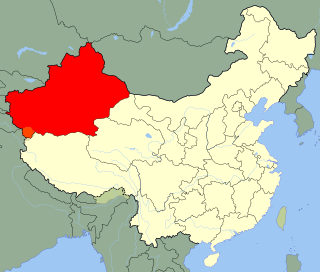
The 2005 Delhi bombings occurred on 29 October 2005 in Delhi, India, killing 62 people and injuring at least 210 others in three explosions. The bombings came only two days before the important festival of Diwali, which is celebrated by Hindus, Sikhs, and Jains. The bombs were triggered in two markets in central and south Delhi and in a bus south of the city. The Pakistani Islamist terrorist group Lashkar-e-Taiba claimed responsibility for the attacks under the pseudonym of Islamic Inquilab Mahaz. The Indian Mujahideen is also suspected of involvement.
In June 2000, the North Caucasian Chechen separatist-led Chechen insurgents added suicide bombing to their tactics in their struggle against Russia. Since then, there have been dozens of suicide attacks within and outside the republic of Chechnya, resulting in thousands of casualties among Russian security personnel and civilians. The profiles of the suicide bombers have varied, as have the circumstances surrounding the bombings.

The 2008 Uyghur unrest is a loose name for incidents of communal violence by Uyghur people in Hotan and Qaraqash county of Western China, with incidents in March, April, and August 2008. The protests were spurred by the death in police custody of Mutallip Hajim.
The Pearl Continental hotel bombing occurred on 9 June 2009 in Peshawar, Pakistan, in which 17 people were killed and at least 46 people injured. The blast occurred at the five-star Pearl Continental hotel in the city. The force of the explosion caused the hotel to partially collapse. Gunman also attacked the hotel, firing several shots at survivors. The United States had planned to purchase this hotel to convert it to a consulate.
The Changsha IRD Building Bombings occurred on July 30, 2010 at about 4:15pm, and resulted in four deaths and 19 injuries. The site of the blasts was the third floor of the Dongtundu (東屯渡) Inland Revenue Department Branch Building in Furong District, Changsha, Hunan, China.

The Shijiazhuang bombings, also known as Jin Ruchao bombings and March 16 bombings, were a series of bomb blasts that took place on March 16, 2001, in Shijiazhuang, the capital of Hebei province in North China. A total of 108 people were killed, and 38 others injured when within a short period of time several bombs exploded near four apartment buildings. Investigations found that Jin was motivated by hatred for his ex-wife, ex-mother-in-law and a lover; he had previously threatened to blow up their buildings.

The 2010 Aksu bombing was a bombing in Aksu, Xinjiang, People's Republic of China that resulted in at least seven deaths and fourteen injuries when a Uyghur man detonated explosives in a crowd of police and paramilitary guards at about 10:30 on 19 August, using a three-wheeled vehicle. The assailant targeted police officers in the area, and most of the victims were also Uyghurs. Xinhua news agency reported that six people were involved in the attack, and two had died; the other four were detained by police.
The 2011 Fuzhou bombings were three separate, synchronized explosions at government buildings in Fuzhou, Jiangxi, China on the morning of 26 May 2011. At least three people died, and at least seven were injured. The perpetrator, 52-year-old Qian Mingqi, was initially reported possibly among those killed in the blasts, leading China's state run news agencies to label it a suicide bombing. The Jiangxi Provincial Public Security Department later confirmed that the suspect died at the scene.
This is a list of terrorist attacks in Pakistan in the calendar year 2011.
These are the list of Terrorist attacks in Pakistan in 2010.
In 2008, Pakistan saw 40 terrorist attacks, which caused 154 fatalities and 256 injuries.
This is a list of terrorist incidents in Pakistan in 2012. Pakistan has faced numerous attacks by insurgents as a result of the ongoing War in North-West Pakistan by the Pakistani military against militant groups, part of the War on Terror. At the same time, there have also been numerous drone attacks in Pakistan carried out by the United States which exclusively target members of militant groups along the Afghan border regions.
The 2013 Beijing Capital International Airport bombing occurred at 6:24 pm on Saturday, July 20, 2013, near the Exit B at the second floor of Terminal 3 in Beijing Capital International Airport in Beijing, China. The blast only injured the bomber Ji Zhongxing himself. No flights were affected, according to airport officials.
Events in the year 2014 in China.

On 30 April 2014, a bomb-and-knife attack occurred in the Chinese city of Ürümqi, Xinjiang. The terrorist attack killed 3 people, and injured 79 others. The attack coincided with the conclusion of a visit by Xi Jinping, General Secretary of the Chinese Communist Party to the region.

On 7 June 2016, at around 08:40 (UTC+3), a bombing occurred in central Istanbul, Turkey, killing 12 people and injuring 51 others, three of them seriously. The attack targeted a bus carrying policemen as the vehicle passed through the Vezneciler district near the Şehzade Mosque and the Vezneciler Metro station.
On 12 August 2017, a suicide bombing took place near a Pakistan army truck in Quetta, Balochistan, Pakistan, leaving 15 people dead including 8 soldiers, while injuring 40 others. The Islamic State of Iraq and the Levant – Khorasan Province claimed responsibility for the attack.
On 8 October 2021, an ISIS-K suicide bombing occurred at the Shia Gozar-e-Sayed Abad Mosque in the Afghan city of Kunduz. Over 50 people were killed, and another 100 were injured, but according to an estimate by the United Nations Assistance Mission in Afghanistan, more than 100 people were killed and wounded.
From late October to mid November 2021, the Allied Democratic Forces (ADF) and the Islamic State organization carried out four bombing attacks across Uganda.






